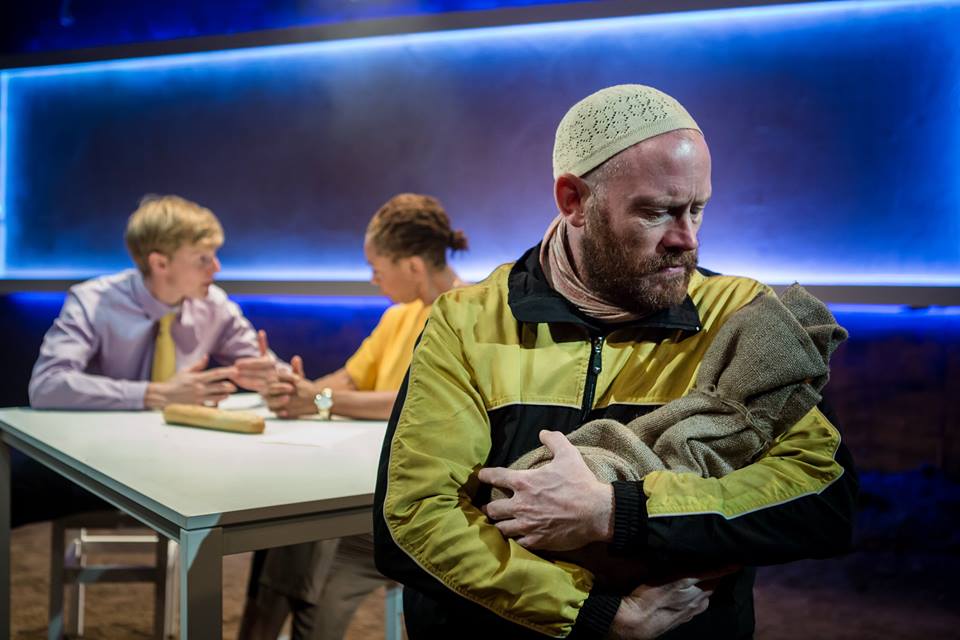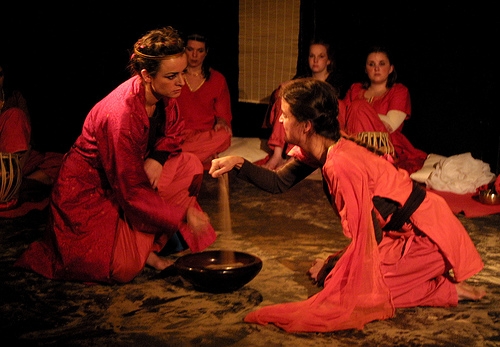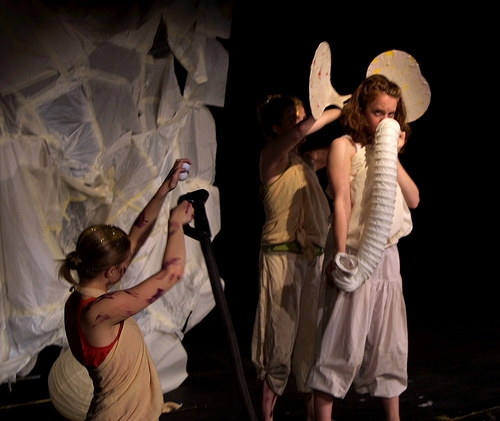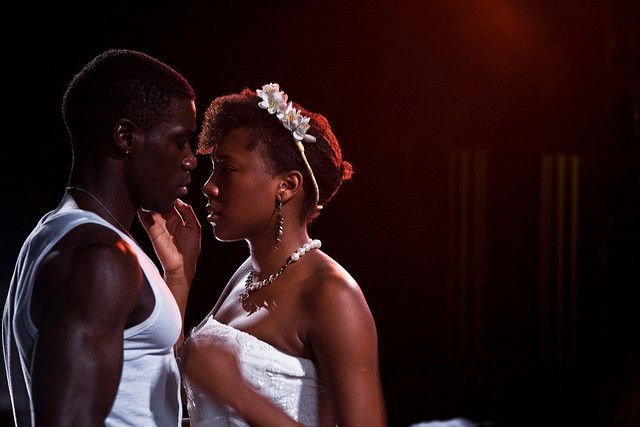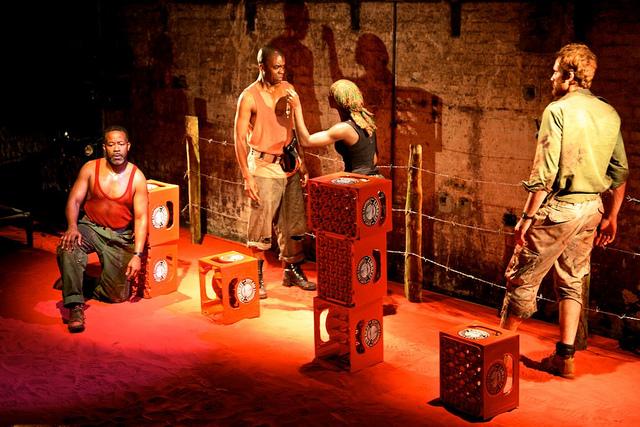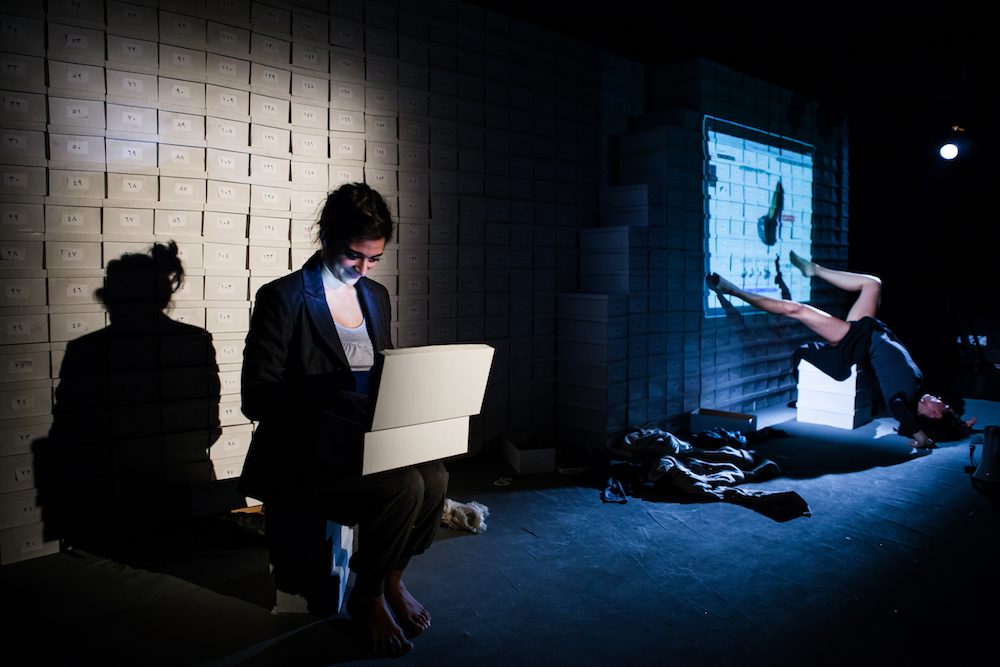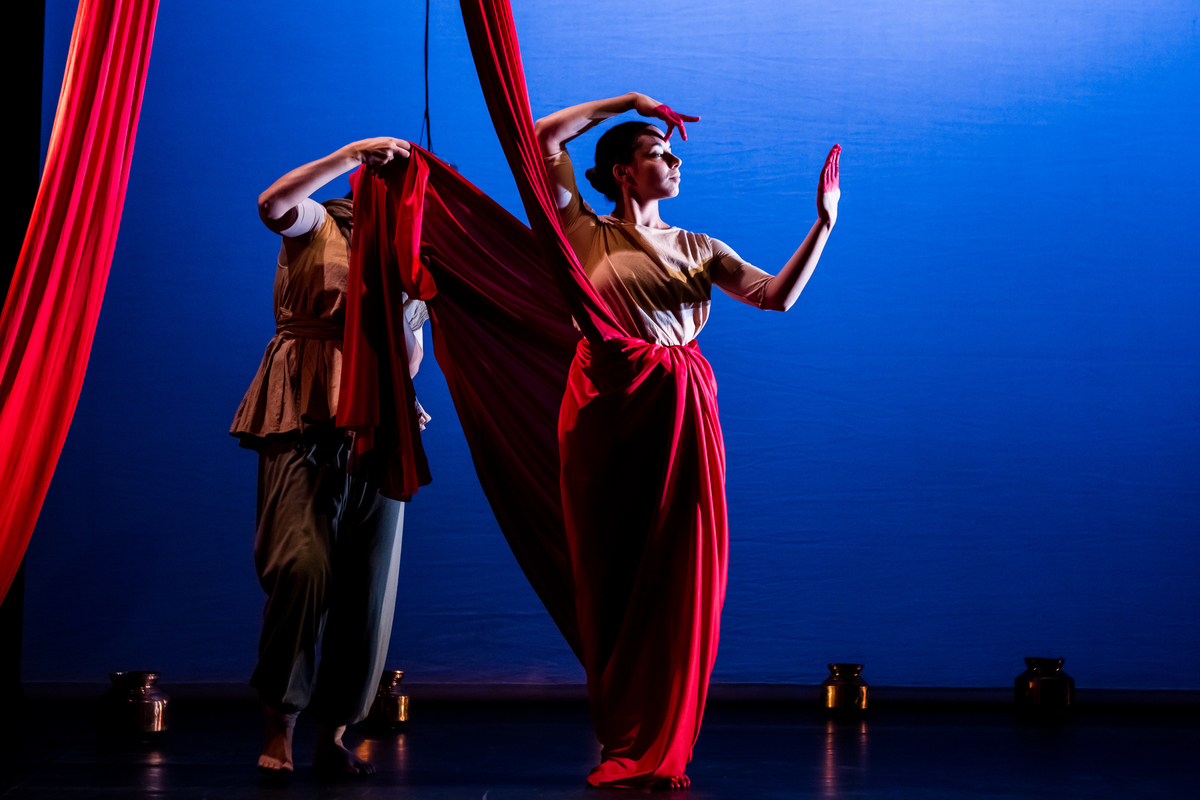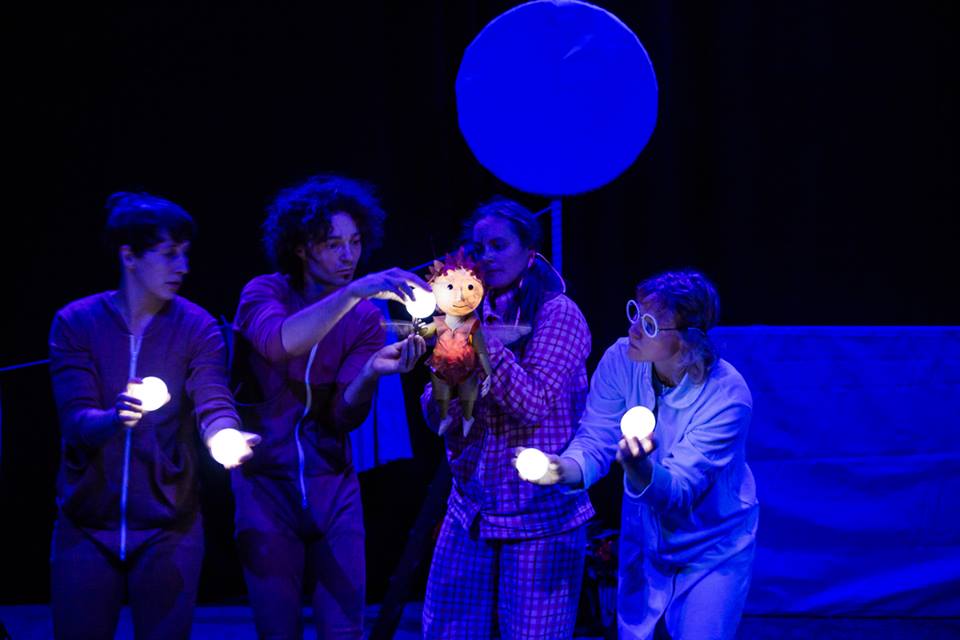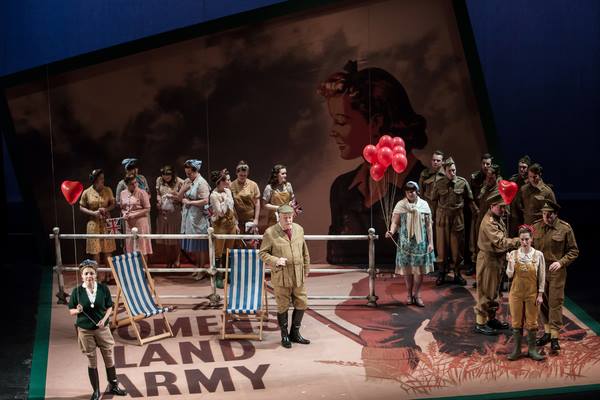After 7 years of trying we have finally made some headway in our attempts to move from making small to midscale work, or from being a small to mid-scale company. It has been hard work for us - perhaps for others it comes more quickly and easily - but to ease other companies and artists on their way here is: Poppy' Short Guide to moving from small to mid scale work, as an artist-led company (Just my humble opinions and experience - no hard and fast rules)
To summarize the below - small scale work is artist-led both for venues, funders and audiences. Midscale work is much more audience led - ultimately you have to make work that significant audiences will want to see, and that venues can feel confident of selling. You also have to feel really comfortable with the idea that you are making work to be sold (which is not generally how most companies conceive of their small scale work). Ultimately you have to start thinking strategically about every choice you make, and that doesn't make you any less of an artist.
- Audiences. You have to be confident that you're going to make work that will appeal to a significant number of people. Very rarely do I meet artists who genuinely make work for (or often even think about) their audiences (except when they're writing their G4A applications). They make the work they want to make, or express the thing they think needs to be heard but if that is too narrow in scope it's very hard to transition to mid-scale. Audiences love to be challenged - but challenge them with heart of the work not with the marketing/offer of what the work is. No one has any money any more - funders, venues, audiences - so they want great art that is bold but not a risk at the point at which they buy a ticket/book the show.
- Hooks. Venues want something they can sell (they may also want quality and originality and diversity but not always). The hook can be a title (preferably out of copyright, that makes life much), or a named actor/writer. We spent 5 years trying and failing to get venues interested in tours of projects without a sufficient hook (albeit with great reviews, images, semi-names, strong scripts etc). Jungle Book was booked entirely off the title - in some instances literally from a one sentence description. Avoid Shakespeare though as you'll have too much competition from established mid-scale companies. You must still make the work that's in your heart too (we didn't realise Jungle Book was SUCH a hook/title when we started developing it - it was the show that we wanted to make).
- Venues. Get them to see your small scale work and begin the conversations. That said there are relationships we've been developing for 10 years where they've seen (and liked) our work and still not booked it and venues we ring up and then and there they offer you a slot and £20k for the week with no knowledge of the company and the work. Again the power of having a title or hook. But in general it is helpful to invest your time in developing your relationships with venues. We have a database of 200 venues, 100 meaningful-ish, maybe 25 properly properly meaningful. But even the latter don't always want the work. They have a programme to balance and you won't always know what else is being put out there. Once you have some venues on board though do mention their names to the others. Also there are degrees of mid-scale - both in size (Jungle Book played Winchester with 350 seats and Eastbourne with 900) and in wealth (which often correlates to level of subsidy rather than size) and in prestige. The lower end of any of those spectrums will have less choice available to them but they will also (generally) do less work for you because their own resources are stretched.
- Advocacy. Having someone already at that scale who will speak on your behalf can work wonders. Since 2012 we had English Touring Theatre mentor us and either through their contacts or their direct advocacy we booked our first full midscale tour (Jungle Book). One of the venues was Exeter Northcott Theatre where we've now been made an Associate Company and now they talk to venues on our behalf and open up the possibility for dialogue with organisations who have never returned our calls for a decade.
- Time. We have been going for 11 years. We having been trying to make mid-scale work/become a mid scale company for the last 7 years. It's happened in a meaningful way over the last year. It could happen quicker - it will also depend on where you're at within your own career, if you start the company already mid-career with a huge network of contacts and strong reputation (as Improbable did) it could be much quicker.
- Budget. Try to make each venue/week wash its face so if you require either subsidy or investment that's only for the creation of the work. We have NEVER yet achieved this because our mid scale work is either for family audiences (which gives you much lower box office yields and/or guarantees) or with casts too large to be effectively viable on the mid-scale. You want a book-able title and a cast of 4 or 5.
- Tourbooking - aim for a guarantee when you can. Venues will programme over your dates with other work (also true at the small scale) so if they've gone quiet push for a deal memo. No one has time to programme so it's done in a rush on Friday afternoons (because it' soften the most creative/enjoyable part of their job) or random times like Sunday morning or Christmas Eve. Go to the overpriced conferences (UK Theatre Touring Symposium and the AGM, Theatre 2016 - which will presumably be repeated) and any conferences specific to your art form, because you can meet all the programmers face to face and network.
- Workload. It quickly becomes untenable to run your company on a voluntary basis when you move from small to midscale (and that is the reality for the majority of small scale companies). Assuming core funding is unlikely and given the prevailing economic climate it is (whether from ACE or Trusts & Foundations) you MUST try and budget full cost recovery into each project OR increase the number of people running the company with you on a voluntary basis or you will go insane. Midscale companies are no more financially viable than small companies as a business model - in some ways they are less so because the extra bodies involved requires more communication/management/admin. You can also mix and match and only aim to realise a midscale project every two years for example (but you do have to maintain relationships with those venues in between).
- Being clever with scale. A two hander can feel mid scale if the piece and/or design is epic. A very pared back minimalist design (cheaper to build and tour) can still have impact and feel midscale. No set or lighting at all but 10 actors can also. Presumably the desire to upscale as an artist is driven by the desire for more resource with which to express your art/vision so make sure you use maximize your resource at any scale. A cast of 6 - all of whom are used a lot can feel more 'mid scale' than a cast of 8 where 3 of them appear only once as maids.
Finally question your motives. Why do you want it? It's no less financially secure, in some ways it's less so because the budgets are bigger, the lead times are longer (so you need to contract people for longer/further in advance) and you'll inevitably take more of your income from box office which is riskier unless it's all guarantees/fees which is unlikely (except in circus). Given the priorities of funders it will probably necessitate touring which may reduce your public and industry profile - it's infinitely easier to get press and industry to see work at a 50 seat fringe venue in London than eight 500 seat theatres across the UK. More things go wrong more of the time - there are more people involved and the possibilities for human error are hugely amplified.
Or more positively: What can scale add to your art? How can scale help you grow as an artist and/or as an organisation? Is it politically important that your work is seen at a larger scale in terms of the message that sense to other artists not currently represented at that scale? (The latter may be a harder sell to the venues but a much easier sell to the funders so you can potentially offer venues an interesting and quality piece of work for a cheaper rate knowing that it's more heavily subsidised.)
And ask for advice from all those who are either making the same transition or have made it or were always making work of that scale. Nice/good/ethically sound people will make the time because they're nice/good/ethically sound and they will connect you to other people who are nice/good/ethically sound.
By Poppy Burton-Morgan


